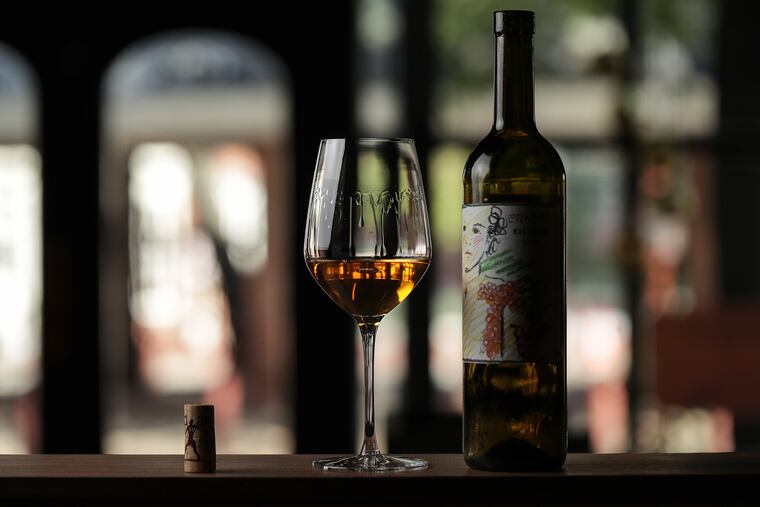Drink: Finding the virtues of Georgian orange wine at Bloomsday Cafe
With notes of orange zest and apricot jam lingering after each sip of this Georgian gem, I kept going back for another.

The trendy natural wine movement is only now just catching up to Georgia, the Caucasus country considered to be the birthplace of wine, where ancient techniques such as aging indigenous grapes on their skins with wild yeast in buried clay vessels called qvevri have changed little in thousands of years. The resulting wines can have a rough-hewn funk that’s a shock to unaccustomed palates.
“Some can be ornery and ugly,” concedes Zach Morris, the co-owner of Bloomsday Cafe, which features an international array of natural wines. “But there’s often this ‘pretty-ugly’ dichotomy that’s challenging and charming in a good way.”
I’d definitely classify a wine from Kisi grapes tasted recently at V Street in the “ornery” zone. It had a musty punch that evoked a wet basement. But the “charm” button was pushed in a big way at Bloomsday by a wine called Chinebuli, made by the same producer, Do-Re-Mi, from two different white grapes, Chinuri and Goruli Mtsvane. Aged on its skins to a deep amber luster, it had a mild, almost-sherried whiff of oxidized bitterness, too. But it was checked by the mouth-coating nectar richness of dried fruits, acidity, and spice that lingered with balance and grace. With notes of orange zest and apricot jam lingering after each sip, I kept going back for another. This qvevri charmer isn’t “pretty-ugly” at all. It’s just pretty.
– Craig LaBan
Chinebuli (Chinuri) by Do-Re-Mi, $15 glass or $60 bottle, Bloomsday Cafe, 414 S. Second St., 267-319-8018; bloomsdaycafe.com